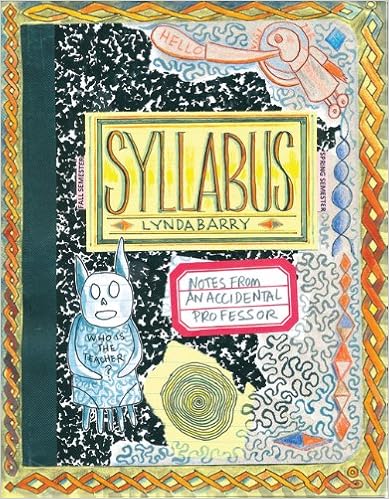Following are selected valuable resources for anthropological study, training, research, methods, and support. This list is not comprehensive, but I'm personally familiar with most of these resources and welcome questions and relevant additions.
Funding Support
 |
| Plaza 25 de Mayo in Sucre Bolivia (July 2013) |
Internal (UK)
- Anthropology
- Robert M. O'Dear Award for Graduate Student Research in Latin America
- Susan Abbot-Jamieson Pre-Dissertation Research Fund Award
- Appalachian Studies
- Eller/Billings Mini-grant Award for Faculty and Graduate Research
- James S.Brown Graduate Student Award for Research on Appalachia
- Graduate School
- Association of Emeriti Faculty Endowed Fellowship
- Woman's Club Endowed Fellowship
- Other Fellowships
- Student Support for Conference Travel (Domestic & International)
- Teaching Assistantships
- Student Government Association
- Student Sustainability Council Funding
- Women's Forum
External
- AAUW American Dissertation Fellowship: Funding (up to $20,000) for women writing their dissertations
- Berea College Olive Ruth Russell Fellowship: Funding support for "women with outstanding academic records who present a defined plan to pursue graduate study in any academic discipline" (both graduating students and alumni are eligible to apply)
- Kentucky Foundation for Women Grants: Funding to support feminist art and social change in Kentucky, offering grants for "Art Meets Activism" and "Artist Enrichment" as well as retreat space for working on/completing projects
- Kentucky Historical Society Research Fellowships: Funding ($500-2000) for on-site research in the Kentucky Historical Society Special Collections
- Kentucky Oral History Commission: Funding opportunities for implementing, transcribing, and preserving oral history interview projects
- Martha Ross Memorial Prize: Funding support for "an undergraduate or graduate student creating original work in oral history" from OHMAR (Oral History in the Mid-Atlantic Region)
- National Science Foundation Doctoral Dissertation Research Improvement Grant (DDRIG): Funding (up to $50,000) for anthropological fieldwork (many additional funding available for various natural and social sciences)
- Wenner-Gren Dissertation Fieldwork Grant: Funding (up to $20,000) for anthropological fieldwork; supplemental "Engaged Anthropology Grant" funding (up to $5,000) is available for grantees "to return to their research locale to share their research results"
Networking Resources
 |
| Source: http://phdcomics.com |
- Academia.edu: Academic social networking site with options for self-publishing (i.e., uploading and organizing) different documents that would not necessarily appear in formal publications (i.e., conference papers, syllabi, teaching documents); interesting and useful tool for encountering relevant scholars in your relevant areas of interest, but not really designed as an online resume-building tool
- Appalnet List-serve: Appalachian Studies list-serve with a broad range of news articles, research projects, conversations, opportunities, etc.; a great resource for activists, artists, and/or scholars interested in participatory research and community development
- ASK List-serve: Anthropologists and Sociologists of Kentucky (ASK) email list of the with information about conferences, field schools, and other opportunities
- DEADANT List-serve: Departmental list-serve for UK anthropology graduate students and alumni to share institutional memory, randomly acquired tidbits of wisdom, funding opportunities, CFP’s and practical assistance (contact current AGSA leadership to join)
- Cooperative for Humanities & Social Sciences: UK CHSS "fosters interdisciplinary scholarly connections .... faculty and graduate student engagement with local, state, national and international communities outside of UK"; "affiliates" both inform and are informed about relevant campus/community events and resources.
- Digital Scholarship List-Serve: Resource for sharing research, funding opportunities, conference CFPs, training opportunities, including many in the digital humanities
- H-Appalachia List-serve: H-Net list-serve "devoted to the discussion of issues relating to the life and culture, both past and present, of the Appalachian region of the United States
- H-OralHist List-serve: H-Net oral history list-serve about best practices in conducting, preserving, and sharing interviews, including audio equipment, transcription software, etc.
- Junior Sociologists Network List-serve: Google Group for JSN "of the International Sociological Association is the worldwide representation of students, early-career academics and practitioners studying and practicing sociology and essentially related disciplines"; I was somehow added a few years ago (I did not subscribe myself), and the CFP’s, job posts, and other resources are so relevant and interesting that I never unsubscribed; content and opportunities are very international and wide-ranging, and JSN/ISA membership is not required to join
- LinkedIn: Professional social networking site offering comprehensive tools for organizing your overall portfolio of experience, with options to upload your full CV/resume and to attach work project to different job titles, etc. through upload or online media; also a great way to network with past and current colleagues
- MediAnthro List-serve: Media Anthropology Network of the European Association of Social Anthropologists email list "to exchange information on the anthropology of media (ongoing research, calls for papers, publications, job vacancies, etc)"; message archives are available for list-serve members
- VANEASA List-serve: Visual Anthropology Network of the European Association of Social Anthropologists (VANEASA) email list "open to everybody interested in the field of Visual Anthropology"; message archives are available for list-serve members only
Pedagogical Resources
 |
| Source: http://bannedlibrarian.wordpress.com |
- AAA Learn & Teach Resources: Syllabi examples and lesson plans searchable by different types and sizes of classes, geographical areas, and topical sub-fields; also additional surveys, reports, and the "RACE: Are We So Different?" online curriculum and interactive exercises
- ANTH 101-Anthropology for Everyone: This is "a free online textbook and hub for Introduction to Cultural Anthropology" and companion to digital anthropologist Michael Wesch's book The Art of Being Human, which includes original videos and instructor resources
- Jeopardy Board Generator: Custom create (or browse existing) interactive game boards for class review of weekly readings or exam units; boards are also downloadable for off-line use
- KQED Education: A wealth of educational resources for teachers and students from California-based PBS affiliate KQED
- My Teaching Notebook: Archived site of Michael Wesch's multimedia blog (formerly "Digital Ethnography"), which includes pedagogical musings, experiments, and video texts exploring the intersections of technology, learning, and human relationships
- Service-Learning Resources: Collection of links to service learning handbooks, template guides, as well as regional and national organizations and resources
- Syllabus: Notes from an Accidental Professor: Ever-entertaining and -insightful author and graphic artist Lynda Barry's colorful book of writing/creative exercises
- Tomorrow's Professor: Online archive of 1988-2021 list-serve with a variety of helpful professional development articles for junior and aspiring faculty
- UK Center for Learning and Teaching (CELT): Pedagogical and professional development resources and workshops for faculty and graduate students
Public Scholarship
- anthro{dendum} (formerly known as Savage Minds: Notes and Queries in Anthropology)
- Anthropologies Project
- Anthrovision: VANEASA Online Journal
- Ethnography Matters
- NatuAural: Sound Ramblings & Constellations of Goodness
- Open Anthropology
- Sidewalk Radio: Anthropology as a Resource to Promote Health, Labor Rights and Visual Media
Software/Applications*
 |
| "Friends in the Field" Hall of Fame #2: Laptops |
- Adobe Acrobat Pro**: Edit PDF's to make them searchable and quotable (and make highlights exportable!)
- Analytic Technologies: Several software downloads for cultural domain analysis and social network analysis
- Aquad 7: Qualitative analysis software including visual analysis tools
- Atlas.ti (Free trial): Qualitative analysis software (limited capability without purchasing full license)
- Audacity: Audio recording and editing software
- DataBasic: Web tools for simple data analysis including a WordCounter (word cloud generation with limited features), WTFcsv (.csv file analysis), and SameDiff (text comparison)
- Endnote*: Bibliographic database and formatter with online back-up
- Google Drive**: Online cloud storage and hard drive sync of folder systems; GoogleDocs offers tools for collaborative group projects; g.uky.edu accounts include unlimited storage across all Google Apps included in the UK service agreement (Gmail, Drive, etc.), which used to be "indefinite access" but now ends after graduation; however, Google Takeout is a tool for transferring Gmail and Drive files from a G Suite account to another Google account
- Google Map: Custom create and share topical maps with keys
- Google Voice: Free long-distance phone calls within the US through laptop or other device; set-up requires link to an existing phone number
- OneNote**: Digital notebook for organizing notes as well as online and multimedia content; standard software in Windows 10, but also included in Microsoft Office suite or as a free standalone download; sync options for cloud storage and collaboration and for mobile apps
- OneTastic: Numerous useful add-ins for OneNote, including OneCalendar (calendar view of notebook edits), image utilities, style customization, and template creation
- Open Office: Open source office suite compatible with Microsoft Office documents and file extensions
- Popplet: Flow chart/mind map generator
- Mobile Media Converter: Convert various digital media formats to other formats (also download YouTube videos for off-line viewing)
- Qualtrics**: Comprehensive survey software for collection of research data and/or class assignments from students
- QGIS: Free open source GIS software with a very comprehensive user guide
- Transcribe#: Audio transcription software
- Wayback Machine: Internet archive for retrieving obsolete webpages
* I have also posted/collected several App Reports that include additional reviews of resources for academic research/writing.
** Available through UK affiliation
** Available through UK affiliation
Theory
 | ||
| Source: https://web.archive.org/
web/20151226184749/ http://www.theorycards.org.uk/ |
- Anthropological Theories Database: Class-based student project providing a helpful textual overview of theoretical traditions and their core contributors in a basic database format; includes both encyclopedic style summaries of each as well as a search function for finding specific concepts and authors
- Feminist Anthropology: Written historical summaries and a “family tree” representation outlining the foundational fore-mothers and -fathers of feminist anthropological theory (originally posted May 1998 and accessed through the Wayback Machine)
- Cultural Theory Trading Cards: Web archive of the original website with twelve original official cards and several more than a dozen "bootleg" trading cards submitted by fans, each summarizing a different critical theorist and their major contributions; the site is no longer active, but creator David Gauntlett has reposted a PDF of the original set on his blog
- Feminist Lisa Frank: Tumblr blog and Frank-styled memes with feminist quotes
- Graphing the History of Philosophy: Conceptual map that visually aggregates the history of philosophy and the relative influence of different philosophers on one another; accompanying essay provides a lot of practical information about the tools used to create the network diagram
- Lisa Frankfurt School: Another Tumblr blog with Frank-styled memes of quotes (and parodies of quotes) by various social theorists
 |
| Source: http://lisafrankfurtschool.tumblr.com |
Training Opportunities
- Human Subjects Research (HSR): Required for IRB approval, includes two different modules for Biomedical or Social-Behavioral-Educational certification; includes optional supplemental modules on Advanced Issues of Informed Consent, Introduction to Community-Engaged Research, Ethical & Practical Considerations in Community-Engaged Research, Introduction to Community-Based Participatory Research, and Students in Research
- Responsible Conduct of Research (RSR): Required for NSF proposals, includes both ethical and legal issues for which both researchers and the institution are responsible; includes both Social & Behavioral and Humanities courses
- Information Privacy & Security (IPS): Required for handling health-related data, but also includes useful supplemental modules that are relevant to for general data management (i.e., protecting passwords & identities; protecting computers & portable devices; and safer emailing, web browsing, & social networking)
- El Sol Escuela de Español: Spanish immersion courses with optional extracurricular activities and classes (Lima, Perú)
- Kentucky Community Scholars Program: Basic field training for community-based oral history interviews and folklore projects
- KQED Teach: An account provides access to numerous FREE professional development credits/credentials for teachers/teaching artists, including many media-related courses that require work products as concrete takeaway resources
- LINKS Social Network Analysis Workshop: Annual summer workshop with introductory and advanced modules and different mini-modules on particular research topics and methods; UK students receive a significant discount on workshop registration (about 10% of the regular cost and 20% of the general student cost)
- MGT 780 Social Network Analysis: Online course syllabus, readings, software links, datasets, exercises, and videos of past classes
- Online Statistics Education: A Multimedia Course of Study: Online statistics textbook with built-in exercises and quizzes
- SpanishDict: Online dictionary, translator, and tutorials
University of Kentucky
Department of Anthropology
 |
| UK Wildcat mascot during Bike Week (April 2013) |
Graduate Certificates
Graduate Organizations
- Anthropology Graduate Student Association(AGSA)
- Coalition of Anthropology Students of Color
- Graduate Appalachian Research Community(GARC)
- Graduate Student Congress (GSC)
- Political Ecology Working Group (PEWG)
Institutional Research Support
- Collaboratory for Research in Computing for Humanities: Multi-disciplinary center for scholars "interested in digital methods, models, tools, environments, visualization, and presentation"; includes a "Digital Research Incubator" in Young Library with workstations, printers, scanners, projector, whiteboard, and conference table
- Education Abroad: Required "Travel Registration" for any international travel/research, whether credit-bearing or not, related to your official enrollment as a UK student; includes required $50 application fee and travel insurance throughout the duration of travel abroad (currently $10.50/week); competitive need-based scholarships of $750-$1500 are also available to qualified graduate (and undergrad) students participating in Education Abroad credit-bearing international programs
- Proposal Development Office (PDO): Resources on external funding agencies and opportunities, including e-newsletters with headlines and deadlines based on the research areas of interest you specify
- Office of Research Integrity (ORI): Most well known as the home of UK's Institutional Research Board (IRB), approval from which is required for all human subject research including social sciences
- Office of Sponsored Projects Administration (OSPA): Required institutional oversight and submission of all external funding applications on behalf of anyone affiliated with UK
* * * * *
Acknowledgements: I have personally completed projects for and/or received support and guidance from many of these resources, which I credit more formally in my online academic profile. Others I am more generally aware of or know someone else who has benefited from them.

Thanks for precise and precious list of valuable resources.
ReplyDeleteThanks for your comment! I'm glad you found it useful.
Delete